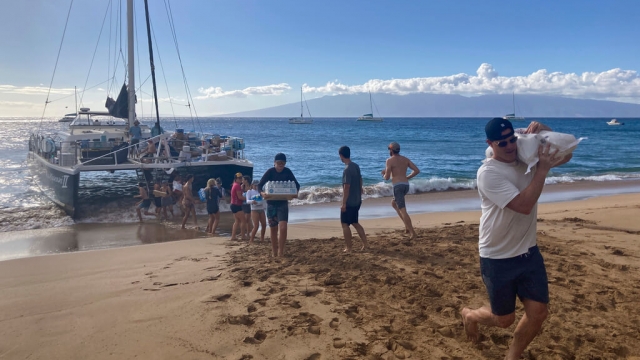The toll from the disaster in Hawaii continues to mount, where wind-driven wildfires on the island of Maui killed at least 110 people and destroyed much of the historic town of Lahaina.
Scripps News spoke with Ret. Lt. Gen. Russel Honoré, who orchestrated the national response in New Orleans, Louisiana, in the aftermath of Hurricane Katrina in 2005.
"It's not a function of tonnage and gallons of supply, it's a function of getting it where they need it," Honoré said of the ongoing efforts in Hawaii. "It appears the state is running the operation from Honolulu, which is about 100 miles away, which is almost the same distance between Baton Rouge and New Orleans. That's a big gap in communications, that 100 miles between Maui and Honolulu. The people on the ground, the first responders, are doing the best they can, but it appears they need more help."
"They are trying to fight brush fires, they're trying to maintain law and order, and all those people on the ground there — they're survivors, too. Most of them have lost their homes."
SEE MORE: Maui fires are another disaster in which warning sirens stayed silent
Honoré, who cemented a reputation during the recovery from Katrina for his no-nonsense efforts to restore order and supplies to New Orleans, says response efforts today should be escalated.
"There's an old saying in the response business in America: 'You've got to go big,'" Honoré said. "My recommendation is to flood that zone."
"Law enforcement always wants to side with security. Recovery is a 24-hour-a-day operation. Right now they're only running the roads about 12 hours a day, and they're closing them. If you're going to recover, you need to have those roads open."
SEE MORE: President Biden, first lady to visit Maui after deadly wildfires
Trending stories at Scrippsnews.com



